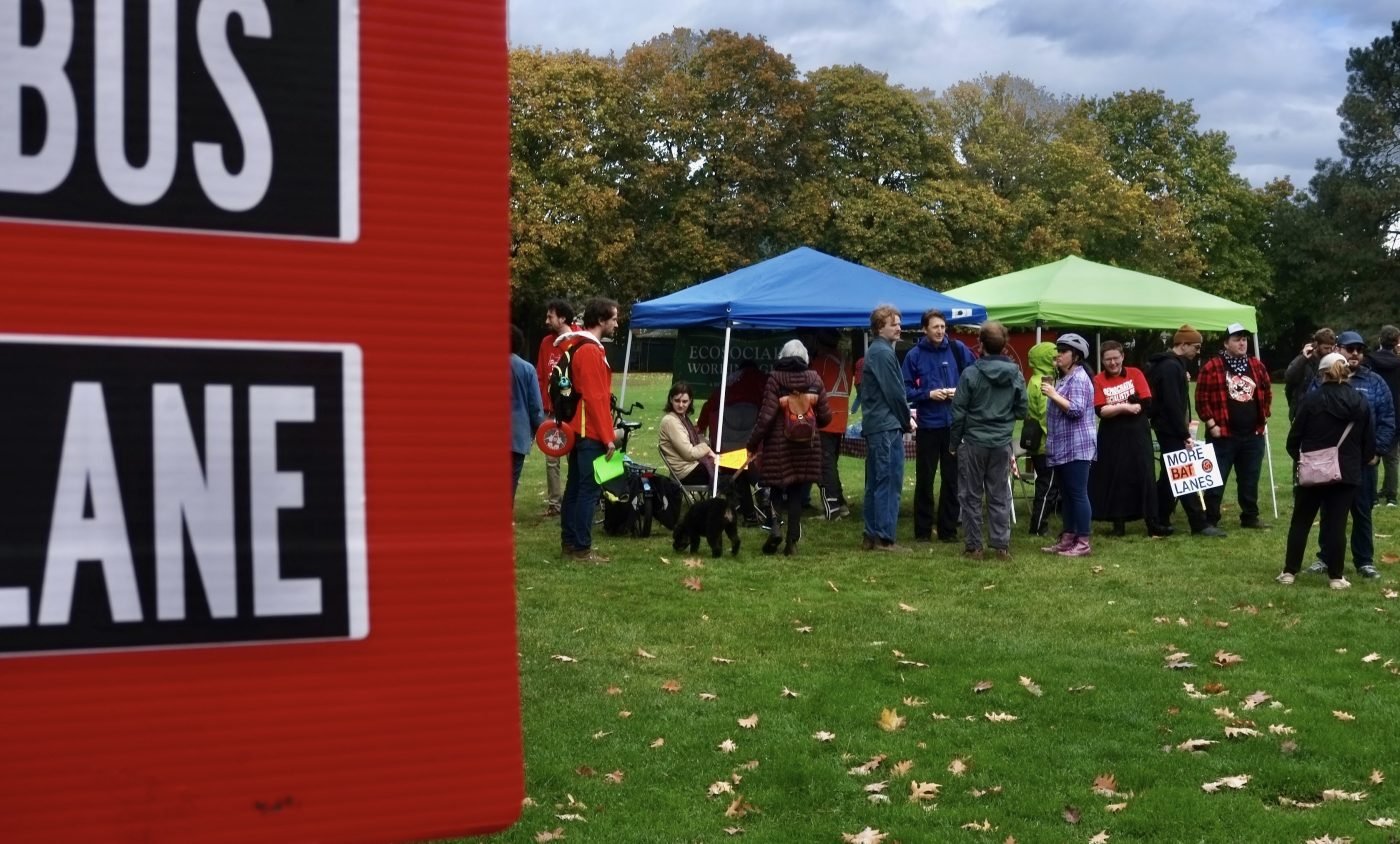
Advocates for better bus service on 82nd Avenue have swung into action after the shock decision by TriMet staff last week to opt for just three miles of enhanced bus lanes on the 10-mile project corridor. Many hoped TriMet would recommend seven miles of “business access and transit” (BAT) lanes.
This post is a roundup of the latest news and notes I’ve collected on this issue…
Dozens attended a rally on Saturday in Montavilla Park organized by the Portland chapter of Democratic Socialists of America. They held signs for passing traffic that read: “We Love You Line 72,” “More BAT Lanes!!!,” and “More Buses on 82nd, Please!”. Among them was Metro Council Duncan Hwang.
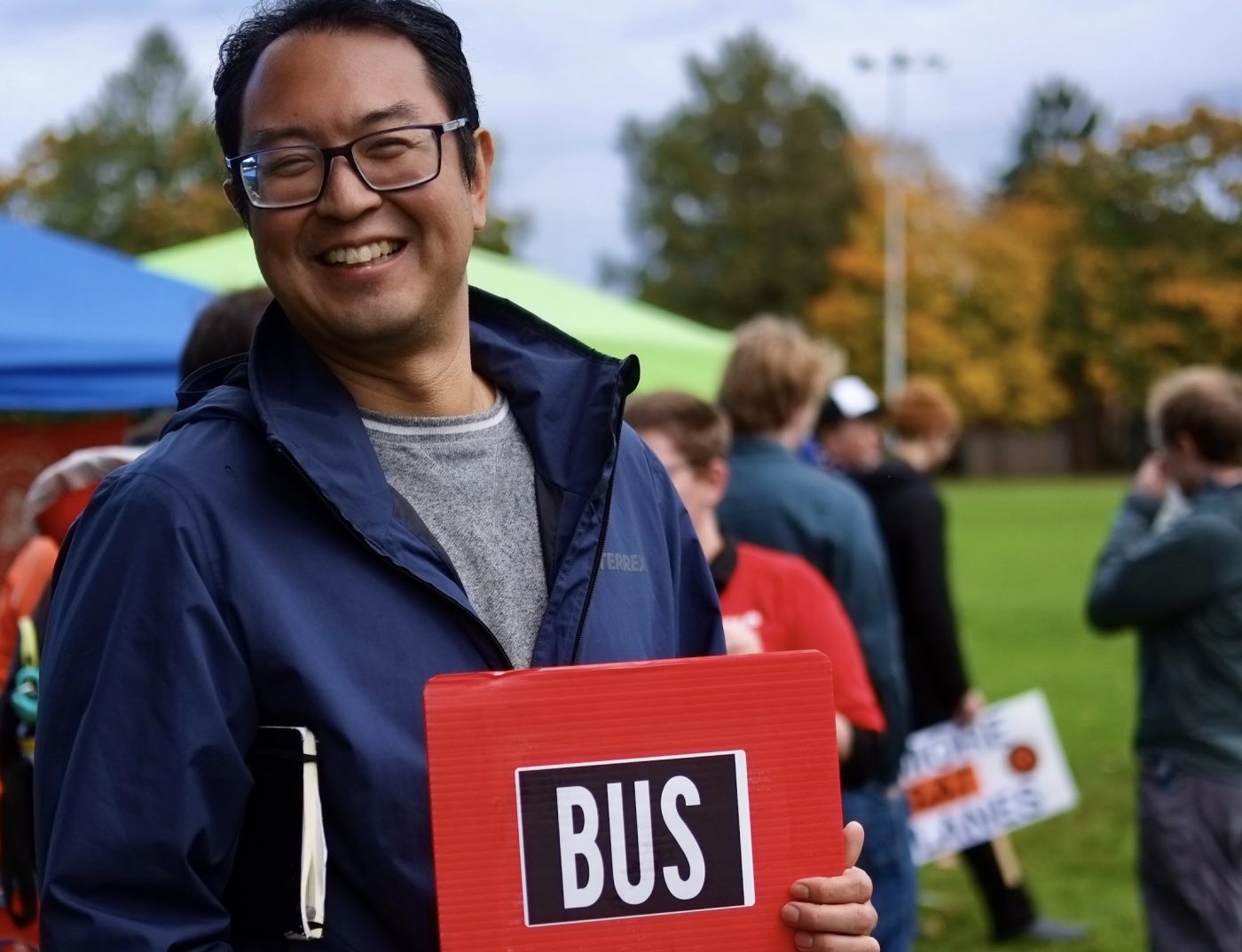
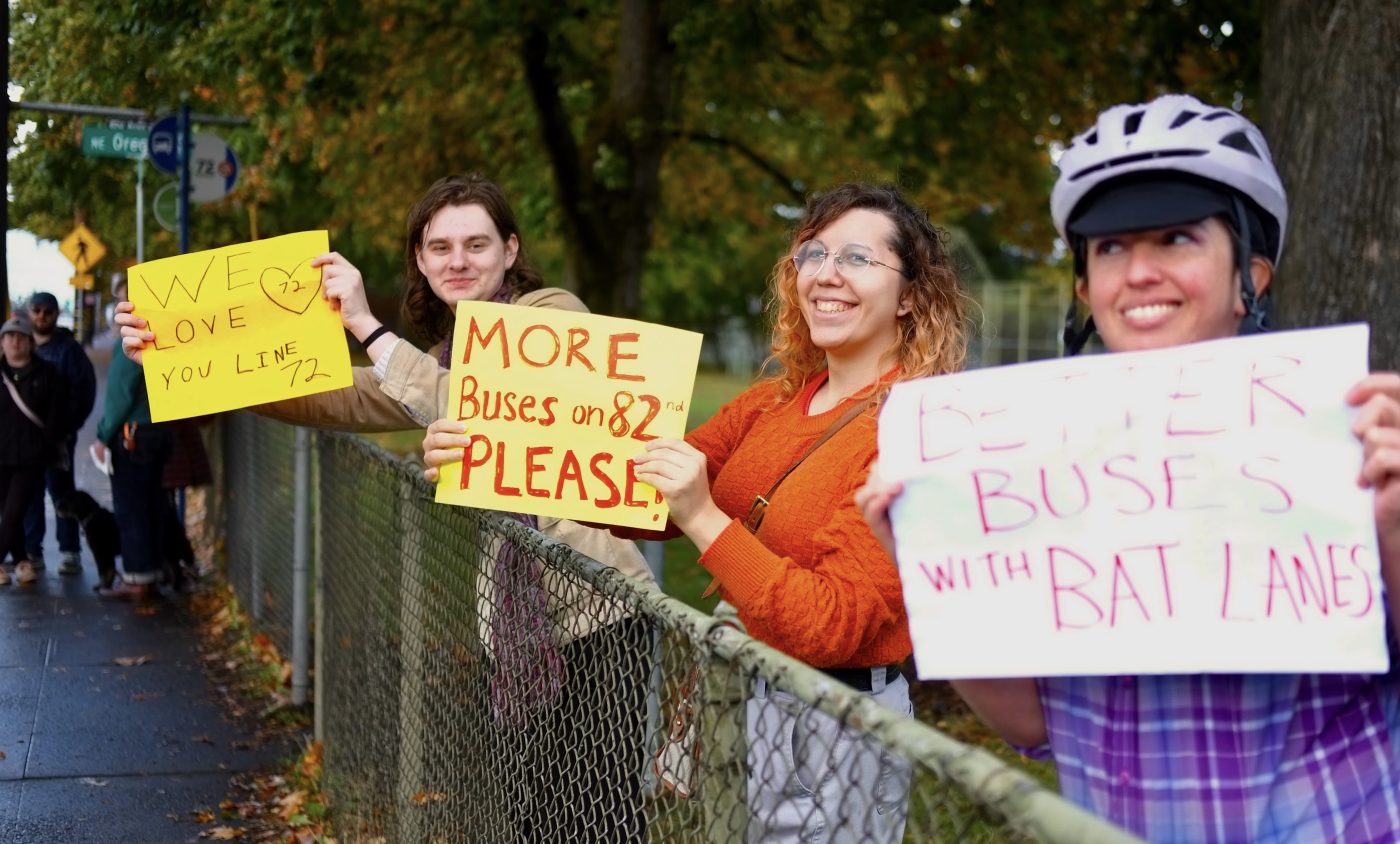
In addition to DSA, a volunteer from BikeLoud PDX is encouraging folks to contact TriMet Board members and there’s a testimony guide for upcoming meetings. Advocates are targeting five upcoming meetings: A Southeast Uplift Neighborhood Coalition meeting tonight; a rally for the bike bill settlement (which includes a push for PBOT to build BAT lanes on 82nd) prior to Portland City Council meeting Wednesday morning, a TriMet Board Meeting also on Wednesday morning, a project Community Advisory Committee meeting on Wednesday night, and the project’s Policy & Budget Committee meeting on November 7th.
Councilor Hwang is on that Policy & Budget Committee. He also lives along 82nd. In a post to the BikeLoud PDX Slack channel Friday afternoon he wrote that, when it comes to the TriMet staff recommendation, “Myself nor Metro [Council] are aligned on that.” “I was very frustrated I learned about this from BikePortland (excellent reporting) and not from our own staff… I don’t support this current proposal.”
Councilor Hwang, who showed up and took part in the DSA rally for the project on Saturday, also brought up a key question with this design decision: Which government body gets to make the ultimate decision?
Who will make the call?
There are three agencies working on the 82nd Avenue Transit Project: Metro, PBOT, and TriMet.
According to a source (who I will keep anonymous) with deep knowledge of PBOT transportation projects and contracts, the ultimate decision for the lane configuration on 82nd lies with PBOT. That’s because TriMet must ultimately get a permit from the city for the project. Metro’s influence is limited to just holding the pursestrings (as the federal funding conduit).
Even though PBOT has permitting power, it’s unclear whether they’d simply accept TriMet’s recommendation, or if they’ll flex that power and give TriMet an ultimatum about the design.
Because the City of Portland has final say, the decision could become political. And as we’ve seen in several recent cases (northwest diverter removal, paid parking extension, and the bike bill settlement), we could be headed for another legislative versus administrative branch showdown.
How the bike bill settlement figures in
As I reported last week, BikeLoud PDX successfully negotiated a settlement with the City of Portland (approved by both PBOT staff and the City Attorney) to resolve their lawsuit that was based on a contention PBOT has not followed the Oregon Bike Bill for many years. That settlement was unexpectedly put on pause when City Council did not approve it as expected last week.
One of the elements of that settlement that both sides agreed on was about BAT lanes on 82nd Avenue (BikeLoud’s lawyers intentionally sought out relevant projects in the settlement). The settlement requires PBOT to support continuous BAT lanes shared with bicycle riders (almost all PBOT’s BAT lanes already permit bicycle use). If the lanes are not ultimately part of the 60% project design, BikeLoud would have the ability to return to mediation.
Next steps
This is one of those stories where it’s not yet clear what will happen next. One person who attended the DSA rally on Saturday posted on Bluesky that, due to all the public pressure that has followed the initial staff recommendation, TriMet no longer plans to vote on the 60% design at the November 7th Policy & Budget Committee meeting. I haven’t confirmed that yet, but stay tuned for updates as I learn more.



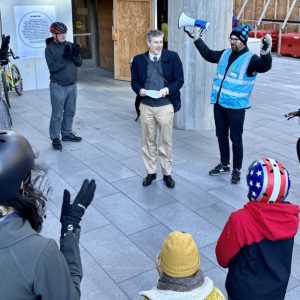
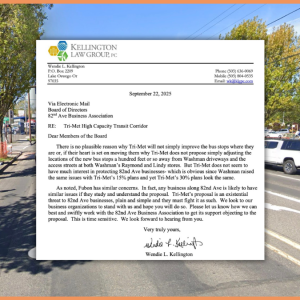
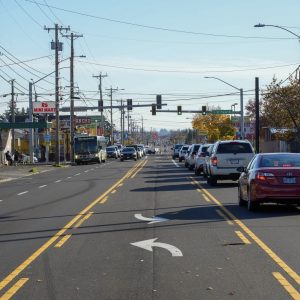
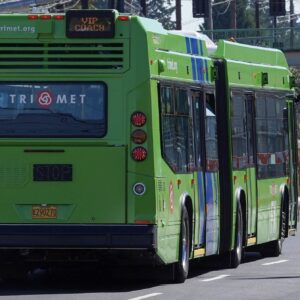
Thanks for reading.
BikePortland has served this community with independent community journalism since 2005. We rely on subscriptions from readers like you to survive. Your financial support is vital in keeping this valuable resource alive and well.
Please subscribe today to strengthen and expand our work.
On the Trimet main project page there’s this statement:
So aside from Trimet, Metro, and PBOT, what is the role, if any, of the Oregon state legislature, the FTA, POTUS, NEPA, the US Justice Dept, and ODOT? Could any of them hinder, modify, or delay this project?
If this project is dependent on federal dollars, I would expect it will be several years before it gets off the ground. That’s plenty of time to renegotiate lane configuration.
In other words, consider any decision made today to be preliminary.
I think it’s good that Councilor Hwang has taken a decisive and public stance on the issues. I wish other leaders of the project would do the same – even if their stance is “no bus lanes”. Then at least we know where everyone stands. Delaying the vote won’t do anything other than give the Trump admin more time to pull funding altogether.
The thing that is frustrating about this situation is how “Small Business Owner” is a superlative that supersedes anything else. Small business owners are just people. Some small business owners are great and truly add to their community, like my neighborhood bar owner, the lady that I buy fancy soap from, and bike blog writers. Others treat their workers poorly, or run businesses that are harmful to the communities they operate in. Many, many just fall into the grey area that most people fall into. Hell, I’m technically a small business owner, but I don’t use it as a cudgel to win an argument (except right now I guess).
The point I’m trying to make is that there’s not an inherent expertise or moral high ground that comes from the business owners on 82nd. I certainly understand that with tariffs raising prices, and general economic uncertainty encouraging people to spend less, many low-margin small businesses are feeling pushed out. On top of that, they can’t really control most of the factors that affect the economics of their business, so the bus lanes become the one thing they feel like the can exert control over – to the point of unhealthy hyper-fixation. The fact is that sometimes people just don’t want to buy what you’re selling. I would argue that if a bus lane causes you to go out of business, then you were probably on your way out anyway.
There’s also the fact that cars don’t buy things; people do. The bus in its own lane moves far more people.
The experience of driving a car on 82nd already sucks. It will continue to suck. It will suck more when population and traffic increases. Yes, I know we are in a slump right now but everything goes in cycles. Surely even the most rage-blinded reactionaries can see that. The only real way to make driving a car on 82nd more convenient would be to add additional lanes by destroying buildings. Maybe some tinkering could be done with signal timing, or they could take out those woke crosswalks, but it would still be bumper to bumper during rush hour. Even if it is widened, it will still fill up with cars and we’ll be right back to square one. If only there was some kind of bypass route for car users nearby…
We have a real opportunity here to make a big upgrade to the bus experience. Adding convenience and capacity to the transit experience that can continue to scale as time goes on. Making 82nd saner and safer to walk along and across. We can make material improvement to the lives of all the employees, residents, and customers who ride the bus on 82nd.
The Fubonn owner talked about how he wanted people to be coming to visit 82nd from around the region. But what does someone from Vancouver have to gain by coming to 82nd? There’s great food, asian grocery stores, hellish stroads, and parking lots in abundance in Vancouver and every other suburb. People flock to Mississippi Ave, Hawthorne, and Division because they’re pleasant streets to be on, not because they’re convenient to drive through.
Well the owner needs to lay out a vision for what it would take to make that happen, or he’s just pissing in the wind. 82nd is a loooooong way from being that type of place at present, A BAT lane obviously isn’t going to do it alone but is at least a tiny step in the right direction; keeping it car-centric is a guaranteed fail in this regard, and many others.